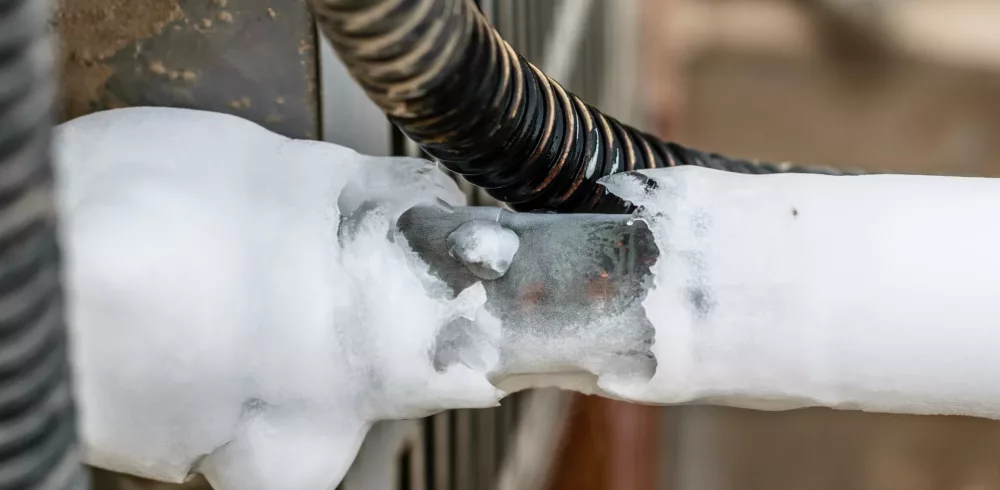The Heating and Hotwater Industry Council (HHIC) is encouraging heating engineers to ensure that condensate discharge pipes are installed correctly, and any installations are upgraded where they have a risk of freezing in extreme cold weather.
With cold temperatures predicted across Europe, some households could experience issues related to the condensate discharge pipe freezing and becoming blocked with ice. While it is the responsibility of a heating engineer to confirm that the condensate discharge pipe has been fitted and insulated correctly, prolonged sub-zero temperatures may still raise the need to thaw the pipe.
To help prevent homes experiencing heating and hot water issues and engineers being called out to condensate-related jobs during winter, the HHIC has released an updated best practice installation and maintenance guide. The trade body has additionally urged engineers to make homeowners aware of the simple steps needed to thaw a frozen condensate pipe when cold conditions strike.
The guide features several key instructions for installing a condensate pipe that will provide maximum protection to the boiler and the customer. It also outlines the alternative of condensate pumps and how to overcome the challenges associated with existing installations. Multiple diagrams to assist with external connections are followed by a list of other considerations, like the type of insulation materials, air breaks in condensate discharge pipes and the issue of unheated areas in buildings.
Steve Sutton, Technical Manager of the HHIC, said: “This winter, we are determined to make frozen condensate a ‘thing of the past’. By following our guide’s main installation requirements, such as sufficient insulation, this will reduce the likelihood of further callouts to homes with no heating due to a frozen condensate pipe.
“In recent years, however, the UK has seen temperatures drop to minus 12 centigrade and below in many areas, during periods of extreme cold weather, meaning that even with this guidance, a risk of pipes freezing still remains. We highly recommend that homeowners get a professional to assess their installation of their condensate discharge pipe and make improvements where required.”
As a result, the HHIC’s guide has included an explanation of what homeowners can do to thaw a frozen pipe and to refer to their manufacturer’s instructions to re-set the boiler.
Steve continued: “We urge engineers to advise homeowners to take care when thawing frozen condensate pipes owing to the risks associated with the weather conditions. This includes a range of considerations, such as it being essential that boiling water is not used when thawing the pipe.”
Visit here to download the HHIC’s condensate discharge pipe installation guide
Manufacturing & Engineering Magazine | The Home of Manufacturing Industry News















